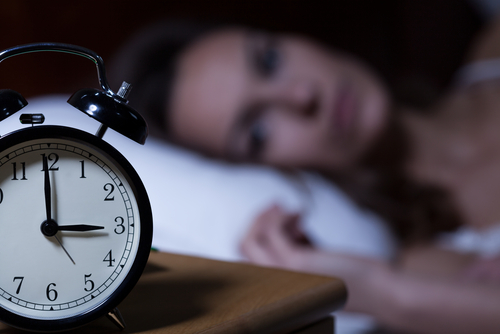Seasonal Allergies and Sleep: Avoid Losing Sleep During Allergy Season
With Memorial Weekend right around the corner, it’s impossible to deny that summer is officially here. The sun is shinning longer and brighter during the day, the birds are singing sweetly, and the flowers and trees are in full bloom.
And while there’s no denying the absolute beauty of a warm early-summer afternoon, nearly 1/3 of Americans associate this period as a time to dread: allergy season.
Most of us are familiar with symptoms of allergies as either sufferers ourselves or recognizing the symptoms in friends or loved ones who regularly suffer every year.
Seasonal allergies – also known as hay fever, and allergic rhinitis (AR) – are caused when airborne pollen from trees, flowers, grasses, weeds, and mold spores enter the body through the nose, eyes, or throat. About 50 million Americans suffer from allergic rhinitis in which their bodies mistake pollen as “infectious invaders” and react by releasing chemicals, such as histamine, to combat the invaders, resulting in inflammation of these areas that leads to discomfort and irritation.

Common symptoms of allergic rhinitis are:
- Itchy nose, mouth, eyes, and throat
- Difficulty smelling
- Runny nose
- Sniffling and sneezing
- Watery eyes
- headache
While these common symptoms seem troubling enough, there is one symptom of seasonal allergies that often gets overlooked: sleep loss. And while a little lost sleep during this season seems minor in comparison to the other symptoms, it can actually contribute to much larger difficulties.
Allergies and Sleep
When sufferers of allergies have nasal congestion, their nasal passages swell up, causing the upper airway to narrow. The narrowing of these passages can increase the risk of, or aggravate existing symptoms of snoring and obstructive sleep apnea.
Sleep troubles can also exist when, during sleep, congestion shifts due to gravity and makes its way into the airways further narrowing them and making breathing during sleep more difficult.
According to a study published by the National Institutes of Health (NIH), 48% of patients with allergic rhinitis reported the condition interfered with quality sleep.
The study also found that allergic rhinitis when can cause a slew of daytime troubles resulting from a lack of quality sleep including:
- daytime somnolence (excessive sleepiness)
- fatigue
- decreased cognitive and psychomotor abilities
- memory impairment
- difficulty concentrating
Coping with seasonal allergies to promote better sleep
Fortunately there are a variety of measures a person can take to reduce their symptoms of seasonal allergies such as:

- Reducing exposure. Staying indoors all day long is probably out of the question for most people, but those with severe AR should avoid being outside in the early mornings when pollen count is highest, or during dry, windy days when pollens are swirling around.
- Keeping doors and windows closed to keep pollens from entering the home especially during the times mentioned above.
- Removing clothing worn outside and washing clothes and bedding often. Dry clothing in dryer rather than hanging outside to avoid pollens collecting on clothing and bedding.
- Vacuuming floors often.
- Using a humidifier in the home and/or bedroom.
- Taking antihistamines and nasal decongestants (however, check with your doctor as some nasal decongestants can cause insomnia).
- Taking hot steamy showers during the evening to clear sinuses.
- Using a saline spray.
- Keeping nasal passages clean by rinsing with water mixed with salt. 2 cups of water to 1/2 teaspoon of salt works very well for a homemade remedy).
- Drinking herbal, non-caffeinated teas at night.
- Practice sleep hygiene.
Allergies and sleep apnea solutions

Allergies can make symptoms of already existing sleep apnea worse. However, if you are an allergy sufferer already on CPAP therapy there are a few things you can do to decrease your seasonal breathing troubles from impacting your sleep.
One of the recommendations is to use a full face mask for CPAP therapy. Because allergic rhinitis causes swelling and discomfort in the nasal passages, it’s going to impact the way one breathes through their nose. Patients with AR are often given a full-face mask so that the pressure needed to keep the airways open can enter the nose and mouth instead of the nose exclusively like with nasal pillows or nasal masks.
When patients with seasonal allergies have difficulty breathing through their nose, the natural instinct is to start breathing through the mouth. If you have AR, get a full face mask so that the effects of AR are marginalized during your therapy.
Another tip for AR sufferers with sleep apnea is to ask your sleep physician about automatic positive airway pressure (APAP) therapy. Unlike CPAP machines which blows a constant stream of pressurized air at one setting, APAP machines are given a high and low range pressure settings. In this way, when pressure needs increase, like when congestion is influencing a change in pressure needs, the APAP machine can raise the pressure to get past the additional blockage.
If your seasonal allergies are causing you to lose sleep, or your sleep apnea is compounded during allergy season, contact your local sleep clinic for help. And if you live in Alaska and want to try a mask or machine that can offer relief during allergy season, contact us by clicking the link below to talk with one of our sleep educators.
Don’t let allergies get in your way of enjoying summer, contact us today.




